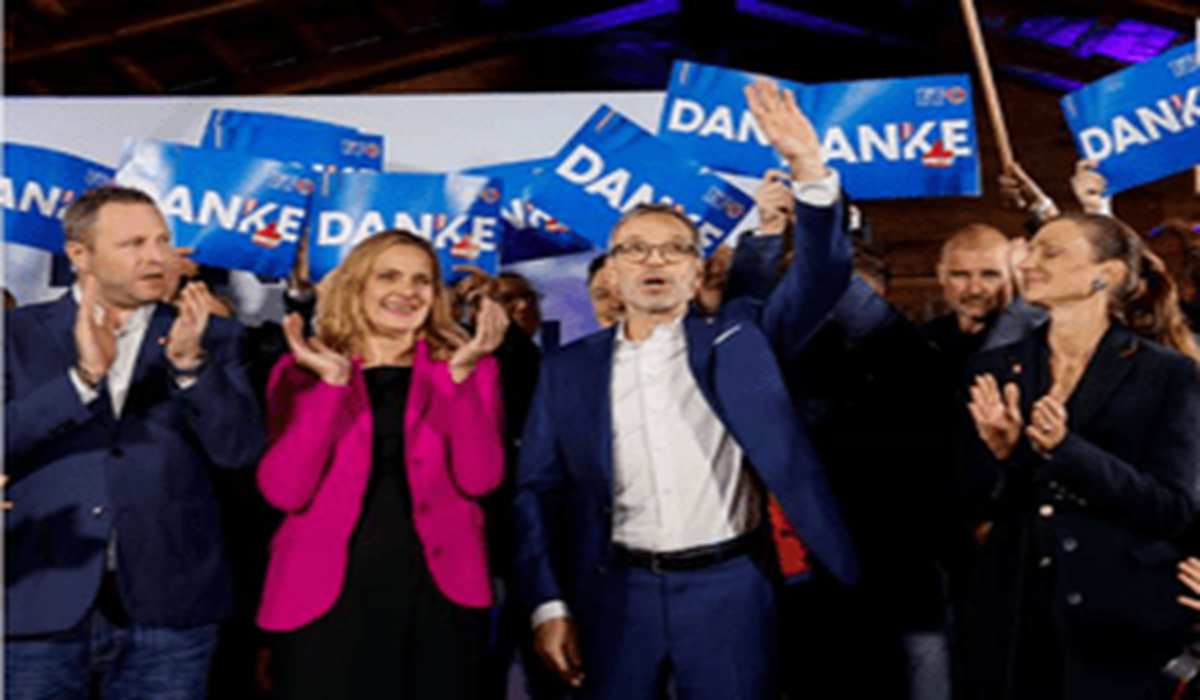
Vienna: The far right won the most votes in an Austrian election for the first time since the Nazi era on Sunday, as the Freedom Party (FPO) rode a tide of public anger over migration and the cost of living to beat the centre-right People’s Party (OVP).
The pro-Kremlin, anti-Islam FPO won 28.8 per cent of votes, beating the ruling OVP of the Chancellor, Karl Nehammer, into second place on 26.3 per cent, according to near-complete results. The opposition Social Democratic party scored its worst ever result – 21.1 per cent – while the liberal NEOS drew about nine per cent. Despite devastating flooding this month from Storm Boris bringing the climate crisis to the fore, the Greens, junior partners in the government coalition, tallied 8.3 per cent in a dismal fifth place.
“We’ve made Austrian history because it’s the first time the Freedom Party is Number 1 in a parliamentary election, and you have to think how far we’ve come,” Herbert Kickl said after the party’s record showing, which came seven decades after its foundation in the 1950s under the leadership of a former Nazi lawmaker.
The party has worked to moderate its image and broaden its appeal, but Kickl remains a provocative and polarising figure, roundly disliked by the other party leaders, who immediately united in rejecting the notion of forming a coalition with him. If Kickl cannot persuade another party to ally with him, it could end the FPO’s hopes of forming a government and open the door to a coalition of more moderate parties. Only the OVP has offered any indication it could work with the FPO, but it has ruled out doing so with Kickl, who has given no hint he could step aside to let someone else take charge. Seat projections suggested the OVP and SPO, which ruled Austria for decades together, could just muster a majority without a third party, which had long looked unlikely. Kickl’s win was hailed by hard-right parties across Europe, where the far-right has made gains in countries including the Netherlands, France and Germany.
That growing support could stoke the risk of divisions inside the European Union over key policy areas like the defence of Ukraine against Russia. Analysts said irrespective of whether Kickl captured the chancellery, Austria was now in uncharted territory.
“Kickl has often said that (Hungarian Prime Minister) Viktor Orban is a role model for him and he will stand by him.” Kickl, who this year forged an alliance with Orban, opposes providing aid to Ukraine and wants sanctions against Russia withdrawn, arguing they hurt Austria more than Moscow. On Sunday, Kickl said he was ready to talk with all parties over forming a coalition, and President Alexander Van der Bellen, who oversees the formation of governments, urged parties to find common ground in negotiations in the coming weeks. Van der Bellen, a former Greens leader, has voiced reservations about the FPO because of its criticism of the EU and its failure to condemn Russia’s invasion of Ukraine. Late on Sunday, a few dozen anti-FPO protesters assembled outside the party’s election celebrations, one holding a placard reading “Kickl is a Nazi” as police kept them at bay. The Islam-critical FPO wants to stop granting asylum altogether and build a “fortress Austria” preventing migrants from entering.
